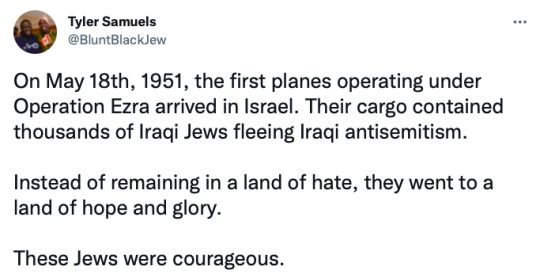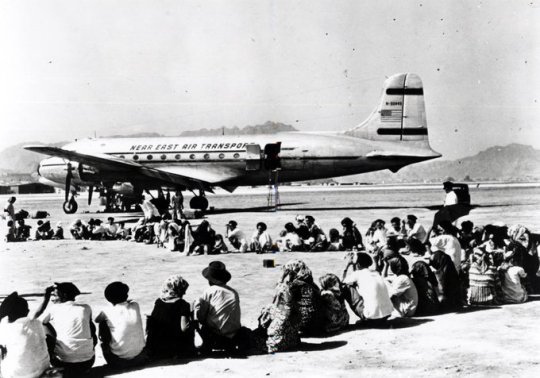#iraqi jews
Text
A few days ago, in my quest to fight the antisemitism that lifted its head around the world following the massacre of October 7th, I stumbled upon a clip from a UN assembly where the speaker asked a simple question-
Dear Arab world, where are your Jews?
A lot of people think that Israeli roots come from Europe exclusively. But in fact, Jewish people were hunted in all corners of this world. In Europe, of course, but also in Asia, Africa and other places all over the planet.
My grandma is an Iraqi Jew. Iraqi Jewish community is one of the oldest Jewish communities in the world, being the direct descendants of the Babylonian exile Jews, so ancient it is an exile mentioned in the Bible.
Recent studies, in which DNA retrieved from canaanite burial lands was compared to current populations in the area of ancient Canaan, has found that Iraqi Jews share the highest similarity to canaanite DNA out of all Jewish communities, more than 50% of the DNA on average.
All the beautiful, peaceful Jewish communities of the Arab world were wiped out in the blink of an eye.
The Arabic world has never treated their Jewish communities as equal citizens, oftentimes robbing them of any rights and performing violent acts of genocide against them (check 'Farhud' on Google).
But their voice was silenced once they fled to Israel.
So I decided to recap my grandma's story in the comments of the clip:
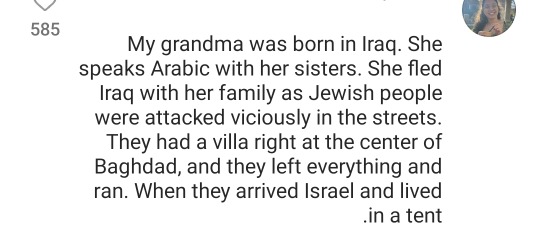
Soon after, many Jewish people with Arabic, or 'Mizrahi' heritage, shared their stories as well:

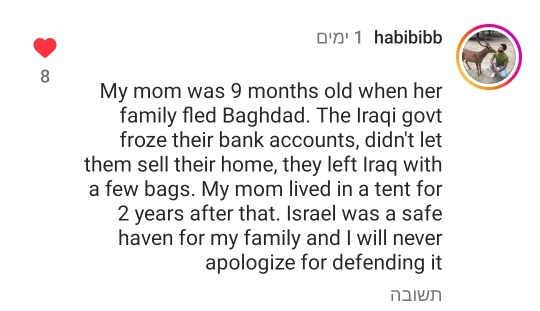
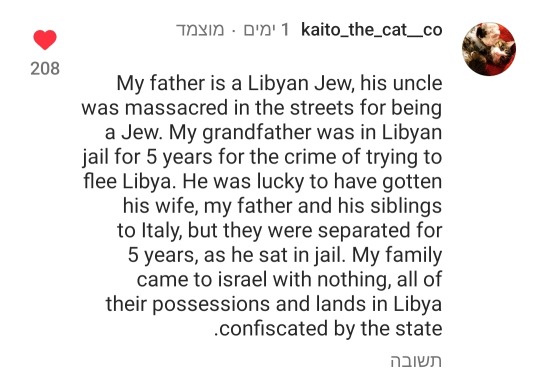
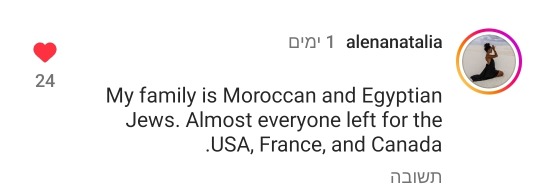
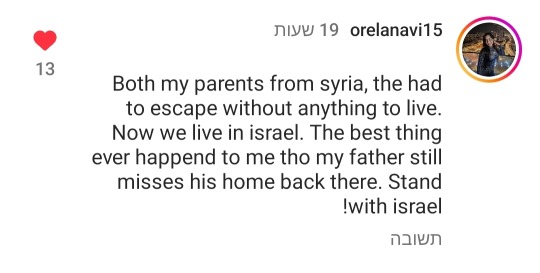

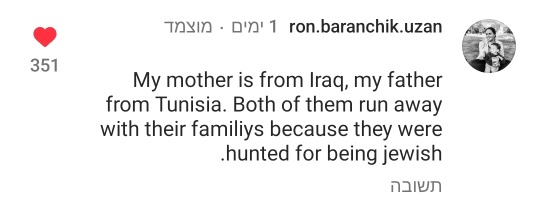
Jewish people all over the planet were driven out of their homes, ethnically cleansed by their neighbors, rulers, and governments.
We are still not welcome in most of the countries of the Arab world. Unable to see glimpses of our history.
My grandma still wishes she could see the house she grew up in. Holding the memories, but unable to set foot in that land, because she would be executed.
Nevertheless, she's not a refugee. She might've fled to Israel, but in Israel, her family got equal rights as citizens, and she built a house on a land she now calls her home.
Don't erase my grandma's story. Don't erase the Jewish ethnic cleansing that brought her to seek a safe haven in Israel.
Israel is a home for more than half of the Jewish people on this planet. Out of the ~8,000,000 Jews who live in Israel, there are about ~2,500,000 Jews of Mizrahi heritage.
And as Golda Meir once said: "our secret weapon is that we have nowhere else to go."
#omi talks#jewish#Iraqi Jews#jumblr#israel#mizrahi jews#canaan#I hate the fact that Israel only trends on this hellsite when people wish its destruction#it's never two state solution it's always 'from the river to the sea'#that's just messed up
1K notes
·
View notes
Text

Wedding of Iraqi Jewish Couple, 1960. Photo courtesy of Maurice Shohet
Source: exhibit.ijarchive.org (Iraqi Jewish Archive)
#jumblr#jewish#jews#nesyapost#jewish history#jewish culture#judaism#iraqi jews#mizrahi jews#1960#iraq#wedding#history#mizrahi#Jewish wedding
403 notes
·
View notes
Text
"A police report and an interview with a former Zionist operative form the basis of Avi Shlaim's claim that he has uncovered "undeniable proof" of Israeli involvement in bombings which drove Jews out of Iraq in the early 1950s, the British-Israeli historian told Middle East Eye.
Shlaim's autobiography Three Worlds: Memoirs of an Arab-Jew, published earlier this month, details his childhood as an Iraqi Jew and subsequent exile to Israel.
It also includes research about a number of bombings in Iraq which prompted a mass exodus of Jews from the country between 1950 and 1951, most of whom, like he and his family, ended up in Israel.
On Sunday, Shlaim told Middle East Eye that he had uncovered "incontrovertible evidence of Zionist underground involvement in the bombs".
As part of the evidence, the historian cited an extensive interview he carried out with Yaakov Karkoukli, a former member of the Zionist underground in Baghdad in the 1950s. "
351 notes
·
View notes
Text
The Jews of Iraq are one of the most ancient communities of the Middle East.
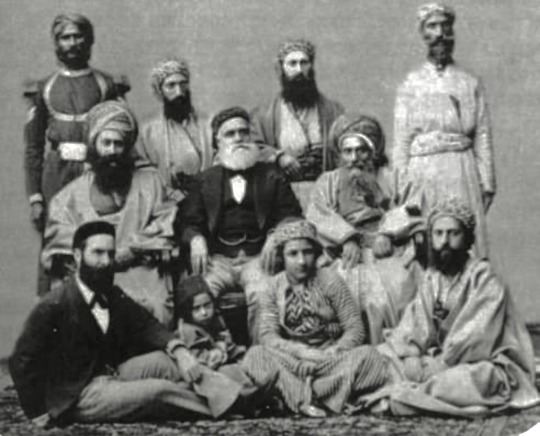
Jews arrvied in Iraq in 586 BCE, and later drafted the Talmud in the Babylonian cities of Pompedita, Nahrdeah, and Surah (Modern day Fallujah).
#secular-jew#israel#jewish#judaism#israeli#jerusalem#diaspora#secular jew#secularjew#islam#Iraq#Iraqi#Iraqi Jews#mizrahi#Sephardic#Sephardi
282 notes
·
View notes
Text

Iraqi Jewish refugees. Circa: 1952
Credit: JDC
77 notes
·
View notes
Text
Tomorrow is Farhud Day, the day marking the violent ethnic cleansing of Iraqi Jews in 1941, equivalent to Kristallnacht and the Holocaust.
There used to be thousands of Jews in Iraq. The ancient Talmudic centers of Surah and Pumbedita were in Iraq. Jews in Iraq, and indeed most of the world, had never been treated as equal citizens, being subject to Dhimmi laws, but still the Iraqi Jewish culture flourished.
Today, it is estimated that there are only four Jews left in Iraq. Four Jews.
The Iraqi Jewish community is one of the oldest Jewish communities outside of Israel, and it was razed to the ground.
If you talk about the Holocaust but don't talk about the multiple ethnic cleansings and genocides of Jews in the SWANA region, you are being deliberately ignorant and antisemitic.
My ancestors lived and died and were buried in Iraq but I can't visit their hometowns and gravesites because they're all gone.
Remember Iraq's Jews.
#antisemitism#violent antisemitism#the Farhud#iraq#iraqi jews#jewish history#genocide#jews in Iraq#judaism
943 notes
·
View notes
Text
“Iraq, you are in our hearts”

The Awafi Kitchen is where Arab and Jewish cuisine are one. They are part of the Iraqi Jewish community and are based in Boston, USA. All of their family were displaced from Iraq between 1950 and 1970. The following statement and photograph were posted on the Facebook page of the Awafi Kitchen, and was titled ‘Our Return to Iraq’.
“Last month, after five decades away, members of our family finally walked the streets in Baghdad, the city they once called home. Out of hundreds of us in diaspora across the world, we were the first in our family to set foot in Baghdad since our waves of displacement between the 50s and 70s.
The trip was every feeling all at once. Pure joy, gratitude, and reconnection, inextricable from the grief and pain of facing our decades of separation, and seeing much of our family’s hometown deeply changed.
Our whole lives we’ve dreamed of witnessing the beautiful Baghdad we have been painted in memories. We found beauty, but also bore witness to the impact of decades of war, the US occupation, and ongoing resource extraction, and how this has limited the place’s ability to thrive.
That being said, the people we met were incredible. We spent two weeks surrounded by an abundance of love and warmth everywhere we went. There's beautiful new realities rebuilding. Iraqis returning, Iraqis who have stayed through it all.
Tender moments of mutual curiosity and excitement: younger Iraqis eager to learn about the old Baghdad of our family’s youth, the lost Jewish history of the city, and in turn our family eager to learn what it’s like to live as an Iraqi in the contemporary world. And ultimately, as friends reminded us, we accomplished our goal: it was just about touching foot to earth, and that we did.
For any Iraqis considering returning like we did, know that you can count on us for advice or perspective. Don’t hesitate to reach out. And for Iraqis with a reluctance to return, for those who still cannot, we empathize with you. Iraq, you are in our hearts.”
#iraq#iraqi#baghdad#mosul#basra#boston#awafi kitchen#iraqi jews#jewish history#passover#easter#us news#manchester#london#Iraqis#arab american heritage month#arab american national museum#manchester jewish museum#travel#the middle east#synagogue#heritage#jewish heritage#remember baghdad#the wolf of baghdad
31 notes
·
View notes
Text
During the 1940s many Jews worked on Iraqi periodicals and newspapers, and on two occasions, where their involvement was deemed too noticeable, the authorities arrested the journalists. One such case involved the League [for the struggle against Zionism]’s publication, al-‘Usba, which had a daily circulation of 4,000–6,000 copies. The authorities banned the publication and imprisoned its editors, Zilkha and Kattan. Compared to Zionists, anti-Zionist Marxist Jews—whether supportive of or opposed to the UN General Assembly Resolution 181, which decided on the creation of two states, one Jewish and the other Arab, in Mandatory Palestine—faced greater hostility and harassment from both government authorities and conservative Iraqis linked to the Istiqlal Party, which was both rabidly anti-Communist and Arab nationalist. On February 13, 1949, the Jewish Communist leader Yehuda Salman Saddiq was executed—together with three of his leading comrades, whom the repressive authorities ensured were of Christian, Sunni, and Shiite origins. It was then that the brilliant Dallal was made acting head of the Community Party. Yet four months later, he too was executed. In Iraq during the 1940s, both Zionist and anti-Zionist Jews met with suspicion and treatment. That is probably why Zilkha, who ironically moved to Israel in the early 1950s, expressed little interest in discussing with researchers his Iraqi Communist past.
Moshe Behar and Zvi Ben-Dor Benite, Modern Middle Eastern Jewish Thought: Writings on Identity, Politics, & Culture, 1893-1958
#jewish history#iraqi jews#jewish antizionism#middle eastern communism#mena#murder mention#death mention#violence mention
7 notes
·
View notes
Text
‘Remember Baghdad’ film is now on Netflix
Since the film ‘ Remember Baghdad’ was made, the number of Jews in Iraq has gone down from five to three. The film, commissioned by David Dangoor, has been seen by thousands. Now it is likely to be seen by millions on Netflix. We republish a 2017 review by Lyn Julius in Jewish Renaissance:
On New Year’s Eve 1946, a young Jewish couple were among the guests at a Benefit Ball in the Iraqi Flying Club. A beauty pageant was taking place: the King of Iraq approached the 21-year old Renée Dangoor, and invited her to take part.
Renée won the contest. Her hand-coloured image of radiant beauty, complete with victory sash, is presently being referenced by 2,700 Arabic websites on Google.
Who would have believed, in the bomb-ravaged, sectarian Iraq of today, that a Jewess could have been crowned Miss Baghdad 1947? “Who is even going to believe,” says Edwin Shuker in the new documentary Remember Baghdad,” that there were Jews in Iraq?”
Edwin Shuker is one of the main characters in the film. The opening sequence shows him leaving his home in north London to catch a flight to Erbil, the capital of Kurdistan in northern Iraq, in a bid to
show that Jews still have a stake in Iraq. Later, we see Edwin in a Baghdadi taxi excitedly giving directions to his driver to find the Shuker family house.
They had abandoned it in haste 46 years earlier.
In a region where the jihadists of Islamic State are just kilometres away, to return to Iraq is a brave, if foolhardy, thing for a Jew to do. Of 140,000 Jews in 1948, only five Jews remain in Iraq in an atmosphere of rampant antisemitism.
This community goes back to Babylonian times when captives from Judea were taken as slaves to the land of the two rivers and remained there for 2,600 years.
The Babylonian Jews had a seminal impact on Judaism as we know it. Yet in 2017, the community is to all intents and purposes extinct, its members driven into exile.
Remember Baghdad started out as a film commissioned by Renée Dangoor’s son David about a group of Iraqi Jews who have been meeting weekly in London over three decades to play volleyball together. Director Fiona Murphy has taken the story to a new level, combining raw material of home movies, family photos and first-person testimonies with rare archive footage – to build a cinematic record of a lost world.
What motivated Fiona, of mixed Jewish-Irish parentage, to make this film?
” The lives of my parents’ families closed down as the British Empire shattered: my father’s community was thrown out of Ireland and my mother’s fled Jamaica. I grew up in London, conscious that people suffer for the crimes of generations long gone.
“So when I was between films and was offered a job cataloguing an extraordinary archive of early home movies belonging to an Iraqi-Jewish family I responded vividly to the news that the Jews of Iraq did well under the British, and paid for it. The end of the British Empire was not the only strand that bound their stories together with mine. My mother’s family was ethnically Jewish. And while that was where the historical similarities ended, the smiling faces in the archive and the stark fact that only five Jews remain in Iraq today, awakened my own sense of loss.
“At first I just wanted to convey the pain of losing your home. It seemed important, now, right now, to push back at the narrowness of our news, dominated by discussion of economic migrants, desperate refugees and the difficulties of integrating immigrants. The older stories were laments about the pain of exile: “It’s a Long Long Way to Tipperary”, and “By the rivers of Babylon, there we sat down and wept”. I wanted to show that that migrants travel with heavy hearts, give them a voice, and bring back the world that was lost. I knew this must be my next film.”
Fiona Murphy’s film is being released exactly 100 years after the British invaded what was once Mesopotamia, throwing three Ottoman provinces together to form modern Iraq. One of the country’s chief architects was the British intelligence officer Gertrude Bell, also the subject of a documentary being released this year : Letters from Baghdad.
Often described as a female Lawrence of Arabia, Bell was a woman in a man’s world. She was the moving force behind the crowning of Emir Faisal as king of Iraq and saw the able, multilingual,
educated, and increasingly westernised, Jews as the lynchpin of the brave new Iraq she wanted to create.
“‘Remember Baghdad’ trailer
“Remember Baghdad “interviews the broadcaster Salim Fattal, the writer Eli Amir, and other survivors of the two-day rampage of June 1941 which followed the overthrow of the pro-British government in Iraq – an orgy of killing, rape and looting. After Iraq introduced a state of emergency in 1948, punishing its Jews for the establishment of Israel, it was primarily fear of another Farhud that spurred 120,000 Jews to leave Iraq for Israel when they had the chance in 1950 – 51. The price they paid was to be stripped of their citizens’ rights and dispossessed of their property.
Although Iraq remained an implacable enemy of Israel, life for the 6,000 remaining Jews continued as one long round of parties and picnics by the river Tigris. The brutal slaughter of the king and his ministers in 1958, their bodies dragged through the streets of Baghdad, came as a shock, but still the Jews did not leave. When they wanted to, in the 1960s, it was too late. By the time the Six-Day war broke out, Jews were effectively hostages of the Ba’ath regime.
The film relates the vengeful terror experienced by the remaining Jews, who witnessed the public hangings of nine of their co-religionists in January 1969 on trumped-up spying charges.
Danny Dallal’s uncle was executed six months later. Scores of Jews disappeared. Danny and Edwin were among the 2,000 desperate Jews smuggled out of Iraq into Iran by Kurds in the early 1970s. They left everything behind.
The film closes with Edwin Shuker signing the contract for the home he has just purchased on a windswept and arid development in Kurdistan. Will he ever live in it? It’s clearly a symbolic act – perhaps the first step on the ladder to buying a property in Baghdad – in order to show
the unbreakable bond between Jews and their 2,600 years in the land. You can take the Jew out of Iraq, but you can’t take Iraq out of the Jew.
” Iraq is in our bones”, says David Dangoor.
But is it?
Many Iraqi Jews still suffer nightmares at the thought of what they went through.
The memory of Iraq recedes year by year. Their children and grandchildren, now citizens of Israel and the West, barely understand Arabic: only the food links them with the past. They have moved on.
The time for nostalgia may be over. Perhaps Remember Baghdad should have a question mark after it?
youtube
23 notes
·
View notes
Text
My wife and I have both had trouble containing our responses and not crying today.
She tried to leave a positive response for good customer service from our ISP today. She is worried about getting the name of the employee wrong or second guessing whether she said something that might have gotten that person in trouble rather than helping.
Something dredged up memories of Iraq for me about how the Coalition allowed Al Qaeda to conduct genocide, torture, and human trafficking of Chaldean Christian communities that predated the Islamic conquest of Iraq. (The Jews were first, but they had been completely eradicated by Al Qaeda before I got there.) We tracked them, collected all the information we could, and sent up drones to watch. Just a couple of missiles from drones that were already there could have saved some poor women from losing their families and being sold as sex slaves. But the Coalition refused to get involved in stopping genocide for fear of appearing to take sides against Muslims and causing Muslim riots. I was involved in this, but I was helpless to intervene since I was lower enlisted and just collected information for officers to make the decisions (and watch the genocide through drone cameras).
Oddly enough, we were both really affected today. I guess trauma is trauma and how we process it is how we are affected. The feelings are real regardless of how others understand them.
3 notes
·
View notes
Text

N.I.H
#iraq
3 notes
·
View notes
Text

Bar Mitzvah in Baghdad, 1961. Photo courtesy of Maurice Shohet
Source: exhibit.ijarchive.org (Iraqi Jews Archive)
#jumblr#jewish#jews#nesyapost#jewish history#judaism#jewish culture#mizrahi jews#mizrahi#iraq#iraqi jews#Baghdad#1960#bar mitzvah#vintage photography
131 notes
·
View notes
Text
Saldad Chemical Lab
TTZ Universal Solution for sale
Saldad Chemical Lab is a modern company with latest working styles. Saldad SSD chemicals are used in cleaning defaced banknotes, cleaning money that was dyed by the bank during a robbery or dirty money that need cleaning. The black money, and SSD Chemical Solution are real but not everyone who claims to clean black notes can actually do it.We deal with a variety of products and services such as SSD Solution, TTZ Universal Solution, Vectrol Paste, Activation Powder, Automated Money Developer Machines, Zuta S4, Congeal Chemical Melting Equipment, and Counterfeit Notes. We provide these products and services on the client’s interest. You can Contact us Via [email protected] or WhatsApp/Tel: +971566944376

0 notes
Text
If you need to defer to a U.S.-based context of whiteness/not whiteness to understand regional systems of inequality and structural violence outside of the United States you are going to have a really hard time with decolonization writ large
#The family guy portrait nooooo#I’m pretty sure the blogger who made it is a yank is the thing#Anyway I’ve been sitting on here watching people call for the deaths of millions of Palestinians and millions of iraqi#Ethiopian Tunisian Turkish Indian and Yemenite Jews#This isn’t twosidesing it so much as saying that watching white people calling for the deaths of millions of people of color and then#Applying it to their own local systems that keep them in control and in which they are privileged!!!!!#Is fucked as hell
78 notes
·
View notes
Text
This is not traditional dress....this is

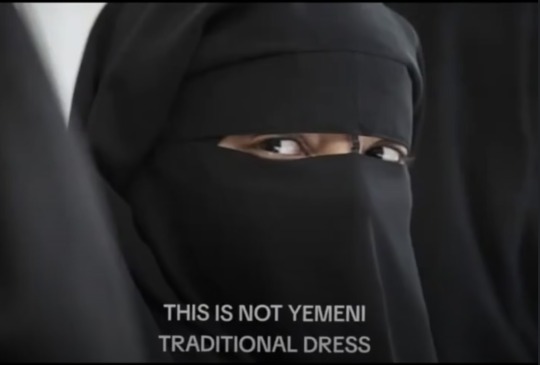



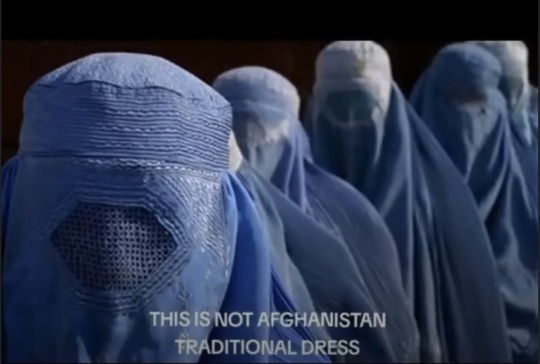



#Yemeni#khazaki#israel#secular-jew#jewish#judaism#israeli#jerusalem#diaspora#secular jew#Iranian#women#traditional dress#afghani#secularjew#islam#moroccan#Algerian#Tunisian#iraqi#Malaysia#Malaysian
27 notes
·
View notes
